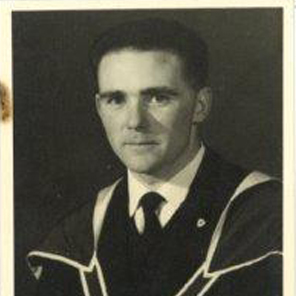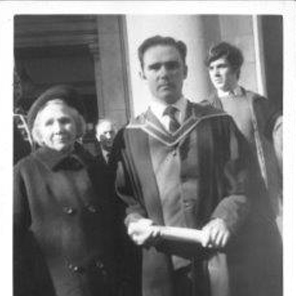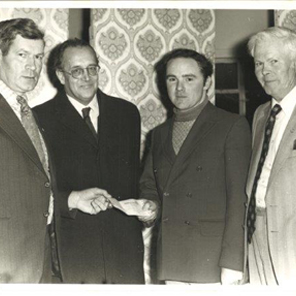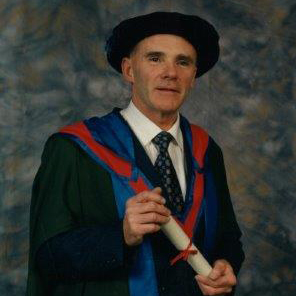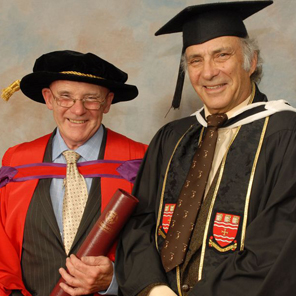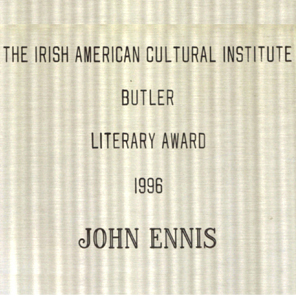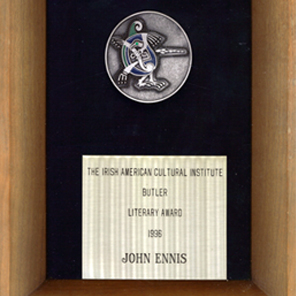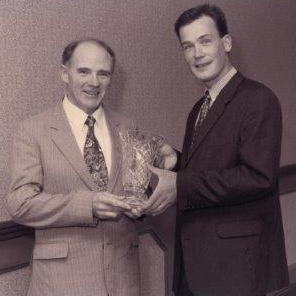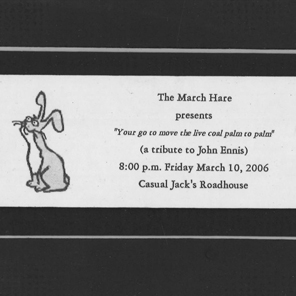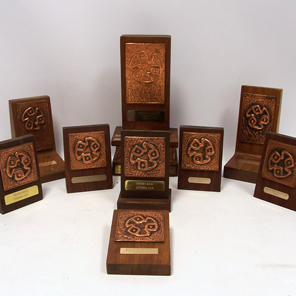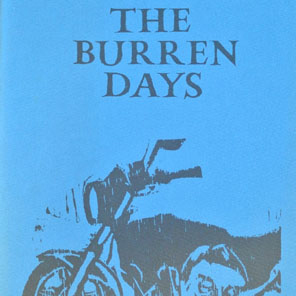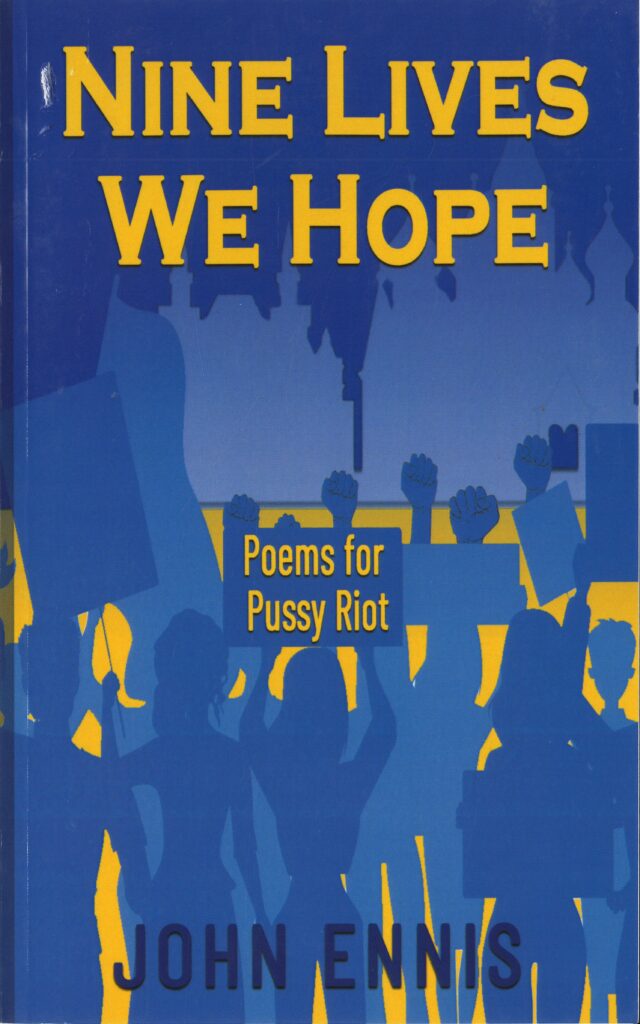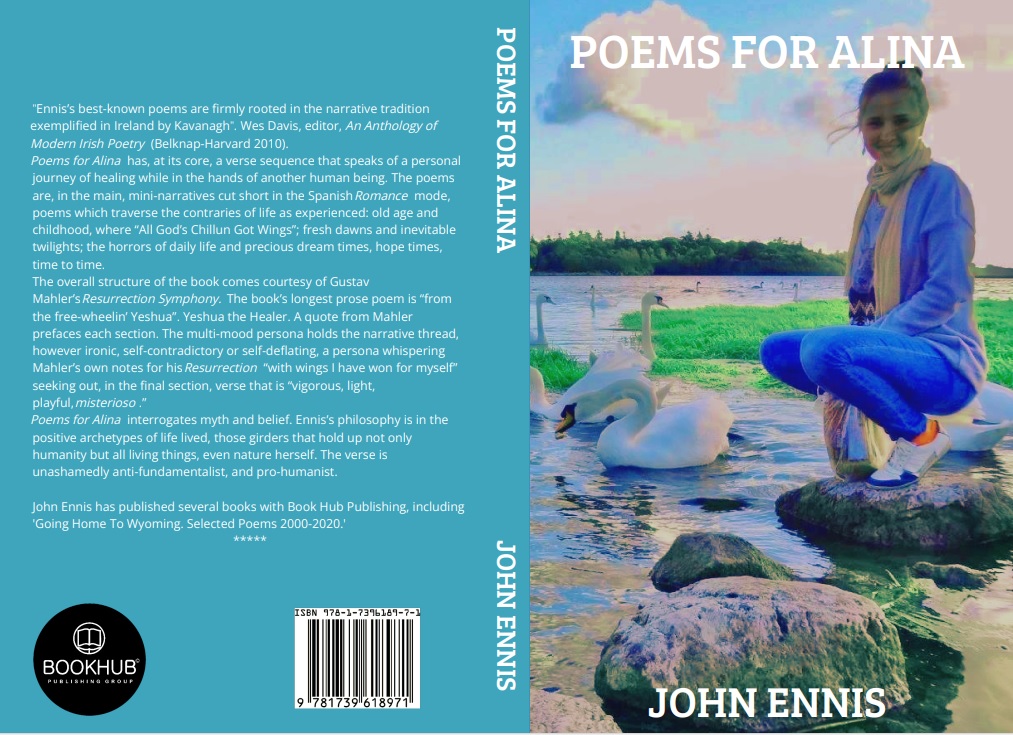
Night on Hibernia | 1976
“Night on Hibernia is John Ennis’s first volume and it includes most of the poems that won the author the Patrick Kavanagh Award last year. Mr. Ennis obviously admires and has a poetic affinity with the ill-starred Hart Crane, that dazzling American poet who committed suicide in his early thirties. Like Crane, John Ennis’s imagery is richly exuberant, yet firmly controlled; and, like Crane, the sea stimulates his imaginative powers. The long poem – more than, say, 40 lines – is a considerable test of poetic stamina. Long poems, especially by those who are expert at the concentrated lyric, tend toward flatness and, more often than not pad along to a limp conclusion. Mr. Ennis gives us two successful long poems, both of them character studies, in which the pressure seldom slackens. On the strength of Night on Hibernia, I should say that Mr. Ennis has definitely arrived”.
Robert Greacen, The Irish Press, 21 August 1976.

Dolmen Hill | 1977
“Dolmen Hill is the second collection of Westmeath man, John Ennis, and includes ‘Orpheus’, which won the open poetry competition at Listowel last year, also ‘Corbetstown’ a prizewinner at Listowel in 1976. ‘Orpheus’ runs to 48 pages and is brilliant literary entertainment: ‘Rilke! Say die no more! Onward Poesy’s Phagocytes! / Remember the limestone lips softly sonneting shut. / Poets hitch themselves to Orpheus as fervently as patients / Plugging in to a Chrome Kidney Machine. After you, / Rainer Marie . . .”
Kevin Faller, The Irish Independent, 18 April 1978.
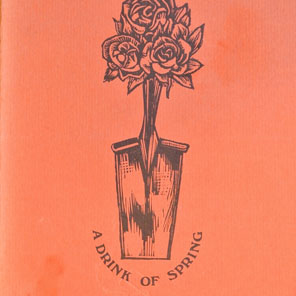
A Drink of Spring | 1979
“A Drink of Spring as well as containing poems individually highly organised in unity of mood and image, develops Ennis’s unique skills as poem-builder, sequence-builder, into such a unified achievement as this book, which becomes, indeed, almost one long poem in parts. The collection is altogether concerned with the death of the poet’s father and contains one of the fullest accounts of a relationship between father and son that I have read. The poems move through three distinct cycles which come across as ordered as the ceremonies of Holy Week and ordered into Holy Thursday, Good Friday and the Resurrection Vigil. The concerns of the book do, in fact, relate to these three days in a thematic way, also: there is the recollection of the sharing of a life in all its fullness, its rites . . .” John F. Deane, Irish Independent.
READ MORE – Listowel Citations
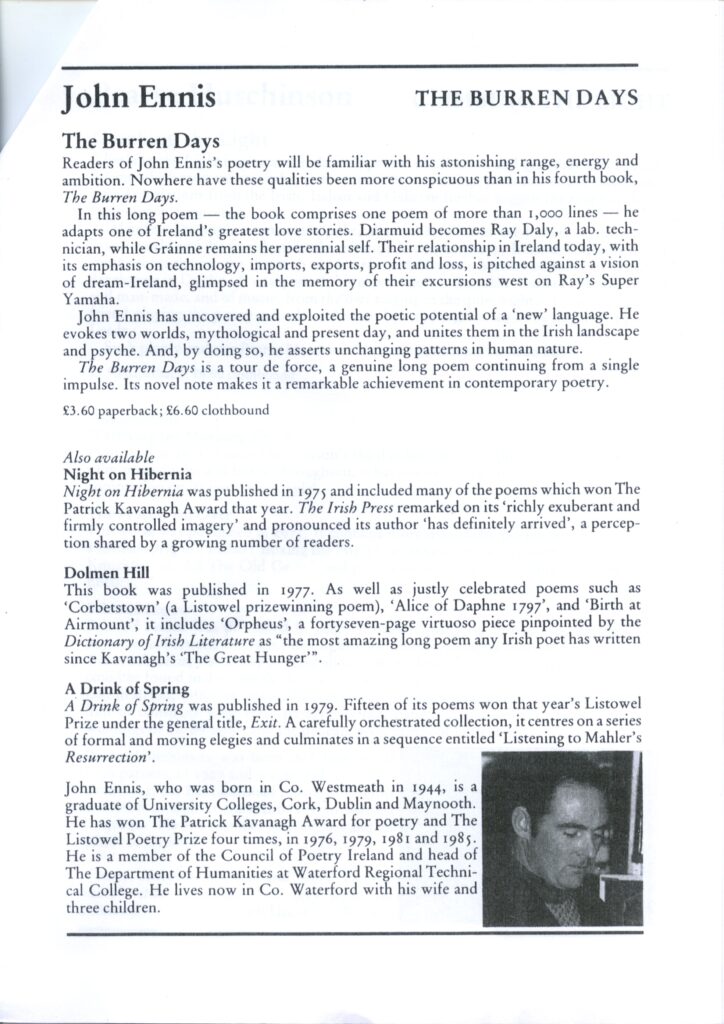
The Burren Days | 1985
“The thing has terrific verve and originality and pleasure: the sense of something, as Frost said, ‘common in experience but uncommon in books’ is delightful. The factory-scape of the working week and the landscape of love and memory are beautifully cross-cut, like the psychic cross-cutting between the ‘80’s Ireland and dream Ireland. The country is seen again, not a fake aisling Ireland, but tarmac and concrete and slurry and traffic, and all this is beautiful and ordinary at once. The pregnancy worry is so good too, again sociologically right and psychologically good in releasing the dreams of erotic life in Ray . . . I found it a powerful medium for ‘getting in’ a lot of actuality and lyricism cheek by jowl. There’s a terrific sense of honest-to-God energy, and a sense of the poet behind it all as a man with a composed soul and free spirit. Also, it really is a single rush of inspiration, extraordinary in a thing so long . . .”
Seamus Heaney Letter
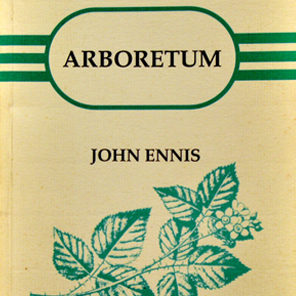
Arboretum | 1990
“John Ennis has produced that wondrous thing, a long poem. On a family outing to an arboretum he sees that it is a kind of microcosm of the earth, of all its territories and its peoples. This sparks off reflections on nature, history and humanity, interspersed with the sensuous immediacies of earth and leaf. Its multiple directions are firmly framed within the passing of the day. An unusual and accomplished work. ”
Hugh Bredin, Fortnight
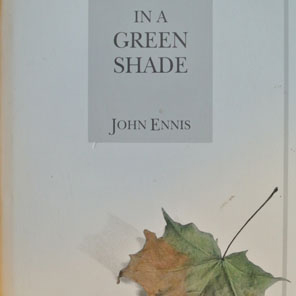
In a Green Shade | 1991
“. . . John Ennis’s poetry is furthermore remarkable as a testament to intellectual excitement, where the veil of the ordinary is torn by sudden disclosures as in the poems on the suppression of protest at Tienanmen Square, and on the death of Patrick White. In the latter, ‘The Tree of Man’, we witness the place occupied by literature in the poet’s responses:
When I panicked in the centre of the field with the stream
Rattling at one end, there were your pages only to return to.
I put one rooted foot in front of the other, one at a time,
Struggled back for Amy, the rag and bone of Sarsaparilla
In bloom, Down at the Dump, the greatest story ever told.
Seán Lysaght, Poetry Ireland Review 36
Down in the Deeper Helicon | 1994
“John Ennis’s book deserves a more grand description than a ‘collection’ of poems. It is more than a series of pieces, it is a body of work, dense, cerebral, scholarly. If you are going to read Ennis on the bus, bring a dictionary. I had to pick my way through, re-reading, catching echoes . . .Studded with quotes and intimate one-way conversations with the great figures of literature and art, it is a book of themes; the intellectual concerns of poetry, muse and inspiration, set in the sweeping arenas of history, mythology, and ancient lore. Although loosely rooted in place, the poems feel universal, timeless . . .
Sara Berkeley, Poetry Ireland Review 48
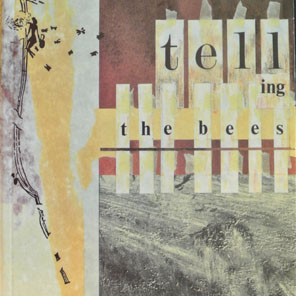
Telling the Bees | 1995
Three of the award-winning long poems from Listowel Writers’ Week. “Letter to Connla”. Never written. In the mind to be. Illuminator, twin-brother, alter ego Connla, somewhere on the Continent remembered by his unnamed twin riding his chariot and four through land sown up by filidh, breitheamhs and church men. Stealer of secret vellum for the letter, tracked down. “This Other Umbria”. Old stroke-disabled speechless Bianconi sees his life flash by in a vision of horses and curtal sonnets. “Telling the Bees”. Kavanaghesque. Well, Almost Everything.
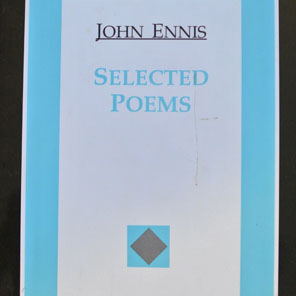
Selected Poems | 1996
“Nothing human (nor animal, nor ‘supernatural’) is alien to this poet. He can watch ants drowning in the nest he has accidentally knocked into a pond with as intense and genuine a dismay as that with which he laments the murdered students of Tienanmen Square. Buddha and Krishna as well as Christ are spiritual forces in his work, while moving from the universal to the parish, he has written in ‘Lemongrove’ an evocation of local religious differences as tender and tactful as Heaney’s ‘The Other Side’, though with a brisker sting in its tail: ‘So, Billy, I’d come to pay my respects. Again, to say hello. / You gripped my hand hard. I wondered when you’d let it go’. At heart he seems to be a pantheist, devoted to ‘the one true church of the fields’ rather than to any institutionalised religion”.
Carol Rumens, “An Ecstatic Writer”, Poetry Ireland Review 53.
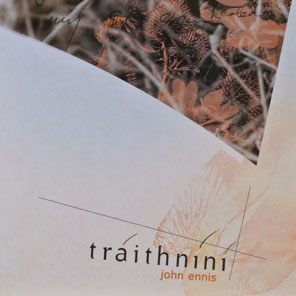
Tráithníní | 2000
“It is possible for a reader to cruise through Emily Dickinson’s poems in an hour – bouncing along on her rhythms, seeing (but not seeing) the passing landscape, hearing (but barely) the poems’ hum . . . So it is with John Ennis’s new book of poems . . . Its one hundred poems lack titles, many are even shorter than Dickinson’s briefest works . . . Though the author says of Tráithníní that ‘these poems / . . . [know] nothing / but their falling’ they also ‘settle / as my one / testimony’, prove that ‘this / shuddering / of stem’ is not a final death. Or, ironically, that writing is a little death all its own, an attempt at survival, a ‘Maybe’. Writers and stubbled fields alike are ‘hosts / most days’, dependent on the hunger of others for their usefulness. And so John Ennis enters his own room where he might say, along with Dickinson, his ‘Message is committed / To Hands [he] cannot see’. It is a message, and a collection, worth taking the slow route through – particularly to savour its great vocabulary of the earth of which we are all tenants.”
Tracy Youngblom New Hibernia Review, Spring 2001
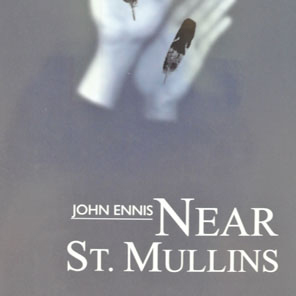
Near St. Mullins | 2002
“ . . . the poem is full of satisfyingly beautiful writing, some of it rich and lyrical, some of it as appealingly bare as an early Irish poem or, indeed (I hope I’m not mixing my drinks here!) an Anglo-Saxon one. All of which, I suppose, is a way of saying that – astonishingly – you have struck yet another note in this work, different not only to your earlier poems but yet different to what others like Heaney, Montague and Padraic Fallon have done with Sweeney. Your resourcefulness never ceases to amaze . . . I should say too that I found the poem extremely moving, full of poignancy and tenderness. Above all, it is true to the spirit of section XXIV – kindling a myth for our ‘inward darkness’.
Dennis O’Driscoll Letter to author.
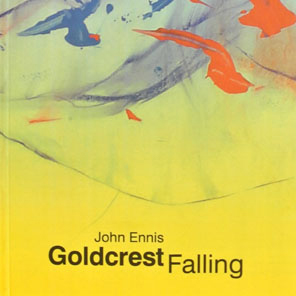
Goldcrest Falling | 2006
“Your Goldcrest Falling has been roosting on various shelves since last April, but I broke his fall this evening and got great pleasure from the experience. There’s something wonderfully untrammelled in the writing yet something held and holding (like those slates) at the core. Such truth to memory and the moment and yet such extravagance. I could almost share your own delight as you caught things on the wing, and thought them as fleeting too. ‘Oisins on Tractors’ as Frost said, common in experience, but uncommon in books. The firetamers and that boy among sparrows sequence are both gleeful and (those dehorned bullocks) grievous. And a particular joy for me to come on the word ‘strigged’ –deep down in my own byre speak, never seen until now on a page. Anyhow – here’s to you.”
Seamus Heaney Letter to author.
READ MORE – Downtown Johannesberg
READ MORE – Copy of Goldcrest Falling R
CLICK ON BELOW LINK for video reading of Goldcrest Falling by John Ennis
https://drive.google.com/file/d/1XonIJmZncf2tQq5MQRJvaNeyTwbZKTJf/view
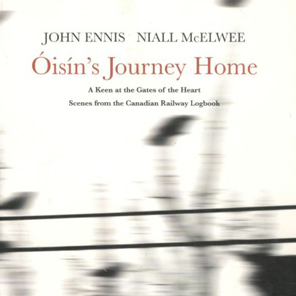
Oisin’s Journey Home | 2006
“The Newfoundland Railway is a part of the proud and rich history of Canada’s most easterly province. . . Dr. John Ennis has written a book of poetry [on the railway]and he officially launched it last Monday at the Port aux Basques Railway Heritage Centre . . . The book is called Oisín’s Journey Home, ‘A Keen at the Gates of the Heart’, all the proceeds go to [our] railway heritage centers . . . He chose to hold the launch in Port aux Basques in honour of the local town council, which at the time of the closure of the railway, said ‘no, we’re not going to accept this’. The story leads up to that point in history as the climax for the poem. There, on page 38, is printed Homage to the Town Council of Port aux Basques – a recall of the events in St. John’s where the town council walked out of the Radisson where government’s plan to remove the railway progressed.”
Mandy Ryan, The Gulf News 06 / 09 / 2006
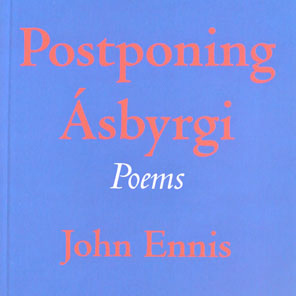
Postponing Ásbyrgi | 2013
“In his fascinating and perhaps most ambitious collection to date, Ennis turns his attention north . . . to Iceland through the unlikely inspiration of the post-rock band Sìgur Rós. Ennis came relatively late to the band, only discovering them for the first time in 2011 while watching the award-winning 2007 documentary Heima, (Icelandic for “home”) which tracked a series of free concerts Sìgur Rós gave in Iceland. Ennis fell for the band, hook, line and sinker, and has been strongly under the Sìgur Rós spell ever since. Now that spell has transmuted into a book of remarkable poems that responds to their music . . . Ennis strikes the right note in this formally layered and nuanced love letter to one of Iceland’s most innovative bands. The poems’ compressed expressions of warmth, intensity and startling metaphoric resonance reflect some of the moments of ecstasy and magic that occur as you listen to Sìgur Rós. Those unfamiliar with their music will be inspired to seek them out, while current fans will be transported further into [their] enigmatic and ethereal translucence . . .”
Adam Wyeth, Southword 24.
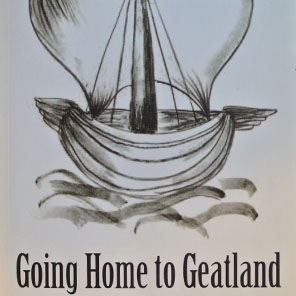
Going Home to Geatland | 2014
The book attempts a broad canvas: it is a foray of sequences and leads off with a brave Beowulf reflecting on his times, where the winning of the dragon’s gold for his people has been a step too far. Thomas Mann’s Hans Castorp, recovered from TB on The Magic Mountain, enlists for the Kaiser and prepares the ground for Mein Kampf. Henry Luttrell remembers Aughrim as he minds the doll Ériu for his daughter within the walls of his Kildare estate. “The Somewhere Sonnets” commences with a young teenager, last of her line, trying to find her glasses in eternity in the besieged Syrian city of Qatna. “And the Times then so Barbarous”, – were they ever, are they ever, any other? “Champions” pass by, an unlikely bunch often, among them old ”doddery” Ronnie and Michail at Hofði, Chief Cleleman by the Pacific, Kunchok Tsephel Gopey Tsang in a prison in Tibet, Nelson and Lorca. There are sonnets of praise, too, “O When the Saints” – for those who wade in on the beaches at Normandy to regain whatever freedoms we still have in these parts; “A Man of Chivalry Returns” – midlander Seán McKeon, who in the spirit of the Táin combatants, dresses the wounds of enemy soldiers ambushed in The War of Independence. Old betrayed vets get a listen to. “Gaza Ground Zero” roots for Palestine and the olives, and is dedicated to Yaron Caplan IOF, in prison for his refusal to serve. “Lines for Moor Mahomed Taraki”, poet and assassinated president of Afghanistan critiques global western expansionism in his own country. So, too, in Iraq and Darfur. Chief Big Tree of the Cheyenne Nation leads cast and reader in “Going Home to Wyoming”, a Here-Comes-Everybody, where the Jerusalem Berserker makes a Guest Appearance from the Temple.
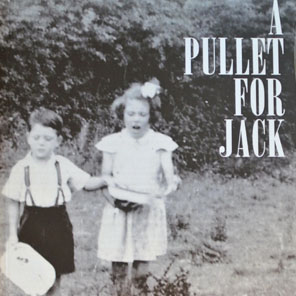
A Pullet for Jack | 2014
“[It] is the nearness . . . of family . . . that animates the collection – family that in all its bickering and its small nobilities, becomes its own mythology. To children, the world of adults is always exaggerated in size. Now, looking back with Ennis, we realize that our families were indeed giants on the earth. John Ennis puts his finger on the central mystery of memory, the paradox that when we recall an incident, a face, or an object with particularity we also participate in the universal.”
James Silas Rogers, Editor, New Hibernia Review.
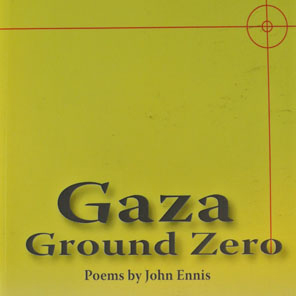
Gaza Ground Zero | 2015
This chapbook is about the ongoing destruction of Palestine. In the murders of young people Ali Safi, Jihad Shehada al-Jaafari and Muhammad Murad Yahiya, the murders of thousands. In the eviction from their house of brothers Nureddin Amro, his brother Sharif Amro and their families, the eviction of a race. In the uprooting of the olives, the attempted elimination of a civilisation. The cancer that is Israeli expansionism remains aided and abetted by world nations. Still, –like the golden beauty of the mustard seed, thrown up by Israeli bombing, to bloom again, which suffuses the cover of the slim volume –
“Smallest of seeds, birds sing in its branches, in the world’s forgotten estimation,
Palestine lives. In all its dereliction by the
Mediterranean, one proud nation”.
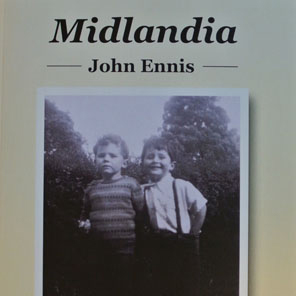
Midlandia | 2015
Midlandia is the final work in the author’s Testament for Home (Postponing Ásbyrgi 2012, Going Home to Geatland 2013, and A Pullet for Jack 2014). Midlandia celebrates the wider Irish midland landscape of town and country, its people and the mystic Uisneach at the heart of the place. No lyric jaunt, the book attempts to embrace both the ugly and the awesome in local humanity. The work takes its cue from the Findlandia of Sibelius. The style is a similar plein air.
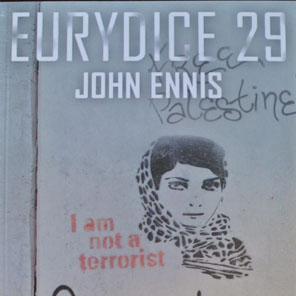
Eurydice 29 | 2016
The book begins with a long poem dedicated to local heroines, sisters Eilís and Emily Elliott of Goldsmith’s Glasson, who were in the thick of the 1916 Insurrection in Dublin, one sister no less brave than the other. Eilís was among the last group to surrender. With a change of clothing, a hold all of revolvers, and hiding all night in a vestry, she walked out among the mass goers the next morning. In the days that followed, she aided the widows of dead revolutionaries. Emily survived too, but like her sister had a tough time of it in the ensuing War of Independence. Her business with her husband was continually wrecked by crown forces. Both sisters by trade were master confectioners. Standing alongside the sisters are other brave women, some Irish, the women of Limerick, Londonderry, New Ross, Betsy Gray of Dungannon, La Pasionaria, Khalida Jarrar, Farkhunda Malikzada . . .
I am text block. Click edit button to change this text. Lorem ipsum dolor sit amet, consectetur adipiscing elit. Ut elit tellus, luctus nec ullamcorper mattis, pulvinar dapibus leo.
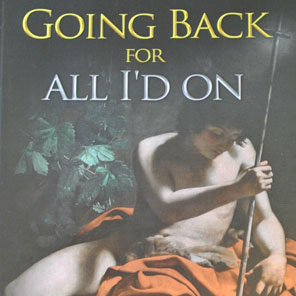
Going Back for all I’d on… | 2017
The story of Yeshua (known as Jesus in these parts) pieced together imaginatively from non-imprimatur studies of his native Jewish tradition. A man starting his public life as strapping moralist on the Messiah trail, gradually jettisoning notions of the Chosen, and ending his days as anarchist in the Jerusalem Temple. Along the way, meet his bosom cousin John, who courtesy of Caravaggio graces the cover, beloveds, partner Mary, mother Mary, Joseph, blood-father Abdes, sisters, brothers, and his kids who watch from “a farther hill” his last hours on Golgotha.
 The Carra Days| 2018
The Carra Days| 2018
John Ennis has found a poetic mother lode in his ‘retirement’ and his latest collection of poetry, The Carra Days, revisits his time in a junior seminary in the early sixties. Teenagers were prepared for the African Missions at Ballinafad (The Fad) in Co Mayo near Lough Carra. It was a time, described by historian, Joe Lee, as “one of the more remarkable conquests of the age of imperialism”. The language of the Missionary texts used words like ‘pagans’, ‘darkness’, ‘savagery’, and ‘superstition’. Irish Catholics were beseeched to “help us to make poor abandoned Africa a Holy Ireland beyond the seas”.

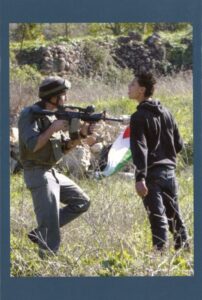 Turangalîla-Palestine |2019
Turangalîla-Palestine |2019
Dairbhre Press
A book of poetry, inspired by the killing of 14-year-old Abdul-Rauf Ismael Salha by Israeli soldiers in January this year, launches in Mullingar, Galway, Dublin, Cork.
Turangalîla-Palestine, published by the award winning Irish poet John Ennis, will be launched in the Black Gate Cultural Centre, St Francis Street, at 8pm on Monday November 25. . .
“The idea of the book dates back to mid-January of this year when the face of yet another dead Palestinian teenager, Abdul Ra’uf Salha, another victim of Israeli sniper fire, appeared on Facebook,” said Mr Ennis. “Something gave in me then to respond with some kind of measured coherence, and in that instant the book was conceived”.
“Turangalîla-Palestine focuses on the very recent dead of a contemporary conflict, the casualties of The Great March of Return. Just as children in Palestine wrote the names of their dead schoolmates on pieces of paper so they wouldn’t be forgotten, so poets in the book wrote poems under named victims so that they, known as the martyrs, would be remembered.”
READ MORE – Turangalîla Palestine
READ MORE – FURTHER THOUGHTS ON THE CONFLICT John Ennis 30 Nov 2023
Going Hom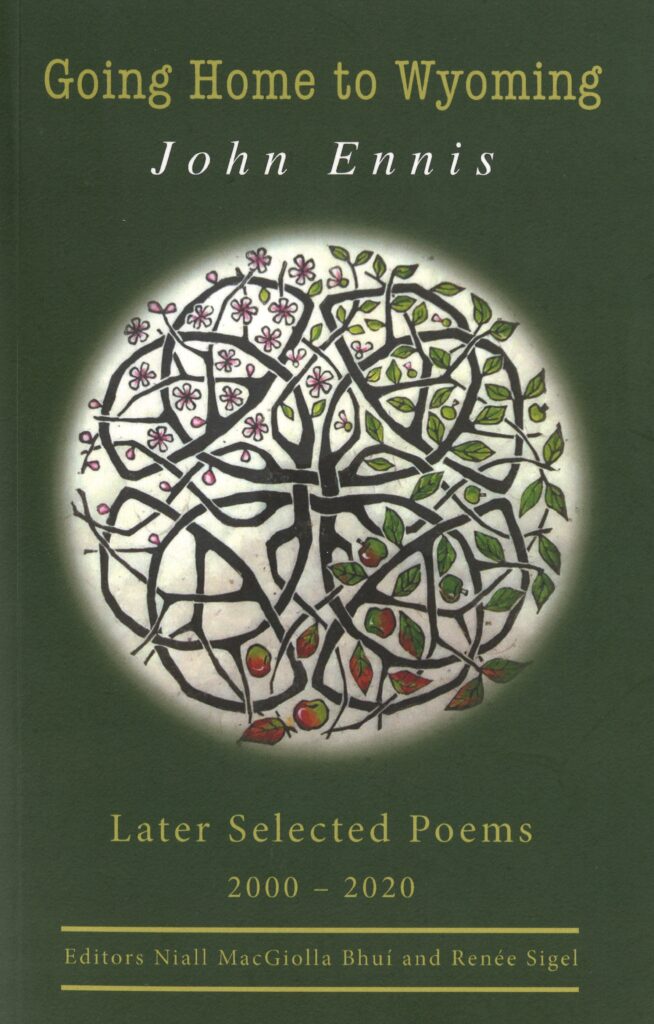 e to Wyoming – Later Selected Poems 2000-2020 (Bookhub)
e to Wyoming – Later Selected Poems 2000-2020 (Bookhub)
John Ennis
Munster Express | 23rd Mar 2021 | Art & Literature, Entertainment
Liam Murphy
The Book Hub Publishing Group have produced another milestone in the diverse and inspirational literary career of John Ennis with, Going Home to Wyoming (Later Selected Poems 2000 – 2020).
The work John Ennis has done as a poet and educator (Head of Humanities at WIT) has marked him out as a committed humanitarian to many causes, local, national and international. He has edited and co-edited international anthologies linking Newfoundland and Canada to Irish and European source material. This alone assures his place in the pantheon of academic achievers and literary luminaries.
The selection is taken from 14 books and was made by the co-editors Niall MacGiolla Bhui (Book Hub) and Renee Sigel (Rare Swan Press). I love the cover with its Apple Tree Celtic Knot, outlining the complexity and simplicity. The title poem is full of references to the poet’s diverse interests like a reflective “subversive of subversives”.
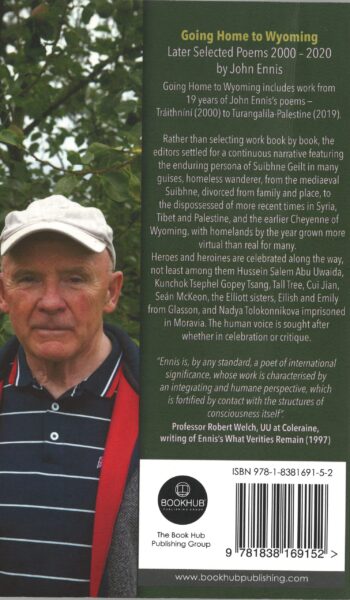
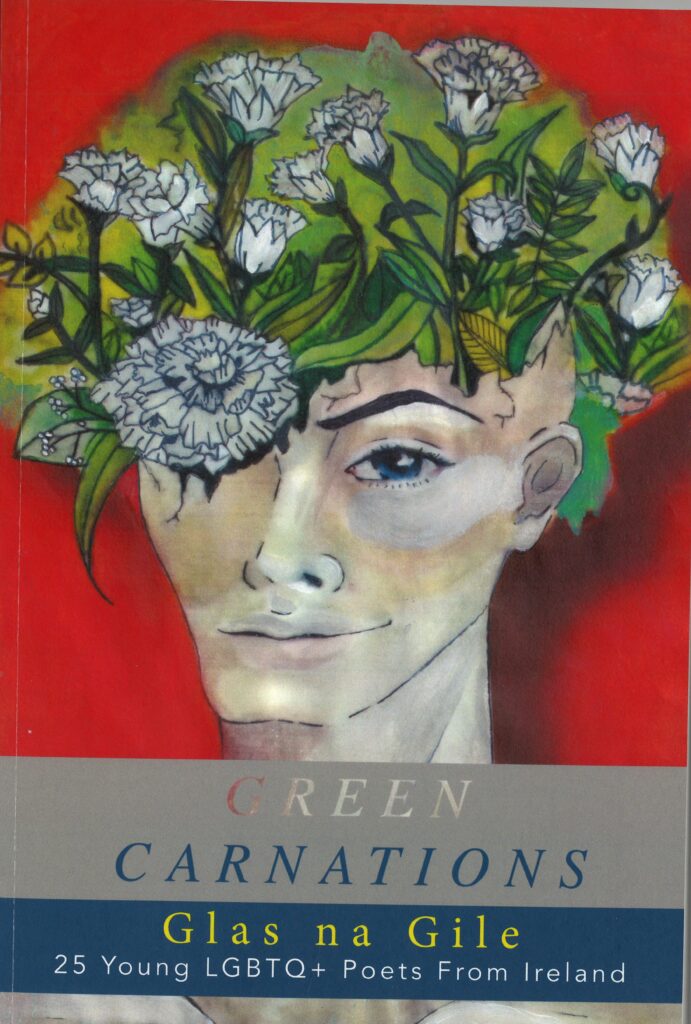
New Irish poetry anthology sheds light on the LGBTQ+ experience in 2021
‘Green Carnations, Glas na Gile’ is an anthology of verse from 25 contributing LGBTQ+ poets from all across Ireland.
BOOKS18 FEBRUARY, 2021. WRITTEN BY KATIE DONOHOE.
The recently published Green Carnations, Glas na Gile, is a fascinating anthology told through the voices of 25 Irish LGBTQ+ poets, capturing the queer experience today.
The anthology charts the ups and downs of first loves, longer partnered relationships and sexual encounters, pleasure and pain, self- reflection and celebration, all through the talents of a diverse range of LGBTQ+ folk.
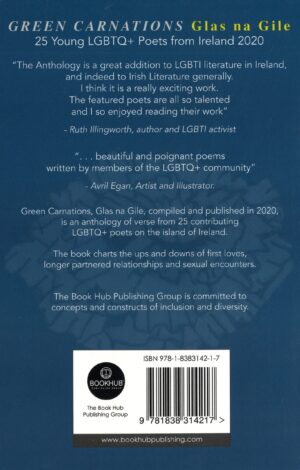
Nine Lives We Hope: Poems for Pussy Riot
John Ennis
For months, Pussy Riot in Voina had been ridiculing in Art Putin’s vain-glorious maleness and Stalin iconization. Their piéce-de-résistance was the forty-second stint in the Cathedral of Christ the Saviour in Moscow, “Punk Prayer-Mother of God” (the phrase “God-shit” summarising Russian Church &State). Their performance caught the eyes of many, and triggered a call from the patriarch to the Kremlin to go-get-them. The women were arraigned in a cage before the court. At their sentencing, as Nadya and Masha were lead away for imprisonment, the women with their beads, who had first reported the escapade, were seen crying reciting from the Prayers for Prisoners composed in the time of Stalin.
64 pages, Paperback
Proceeds to Ukrainian War Relief
Pastures New, Composition
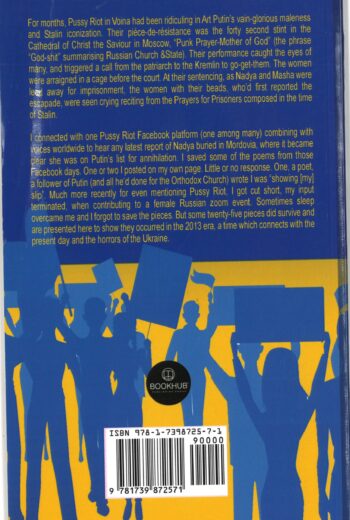
ANTHOLOGIES | Co-edited:
See also School of Humanities Publications (Humanities)
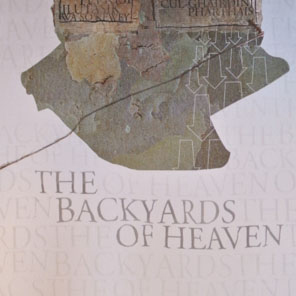
The Backyards of Heaven | 2003

Launch at Kenny’s Galway, editors McKenzie and Ennis
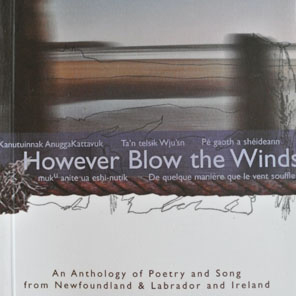
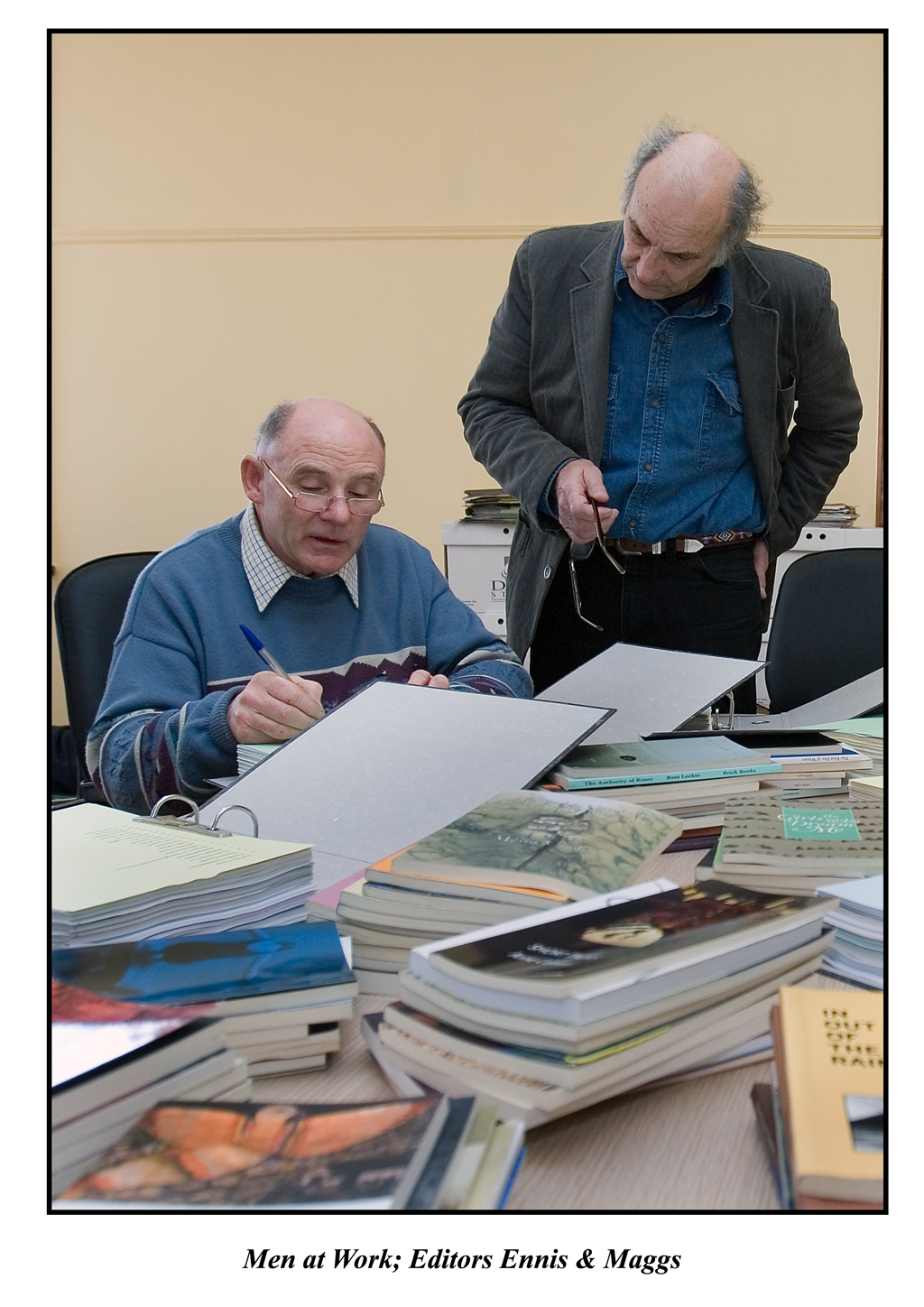
However Blow the Winds | 2004
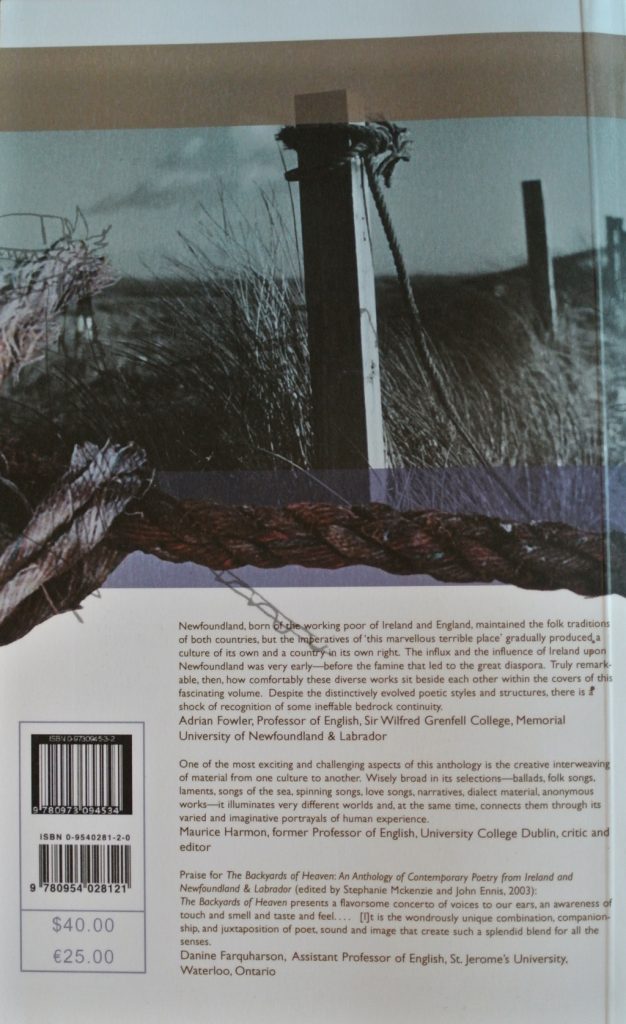
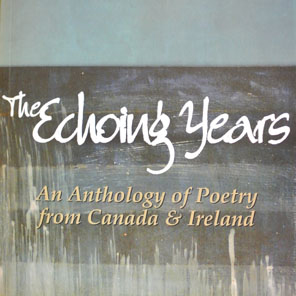
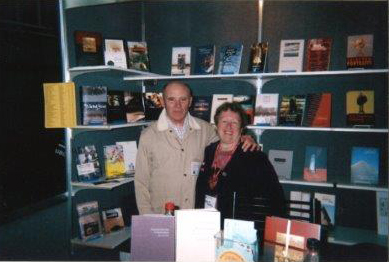
With Kitty Lewis at the Learneds
The Echoing Years | 2007
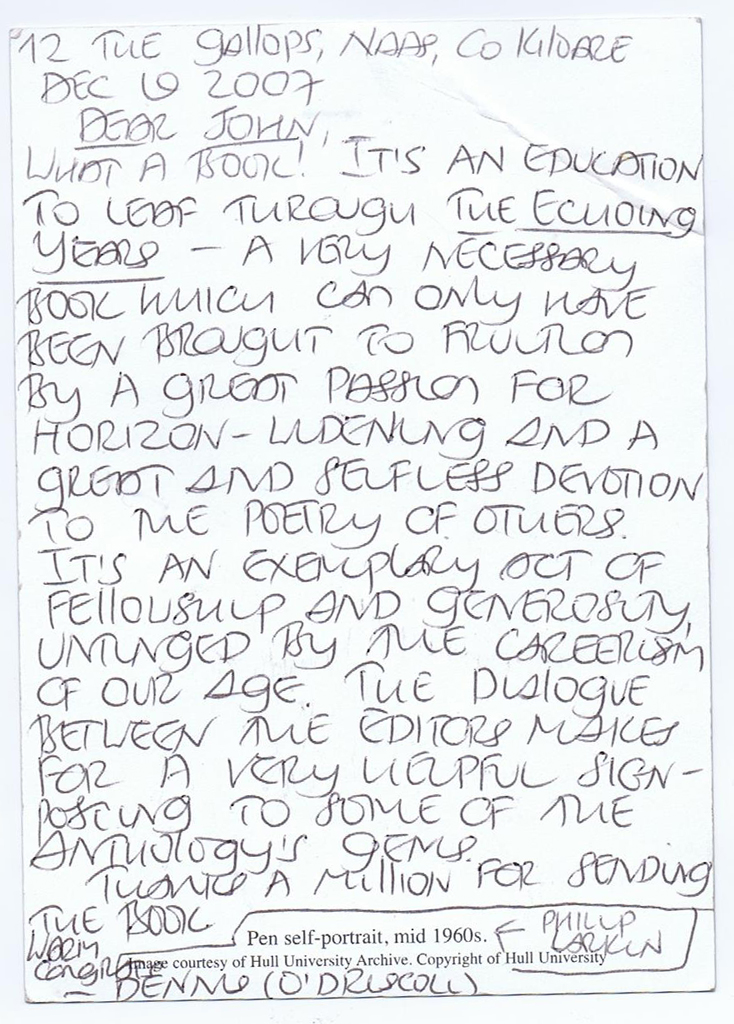
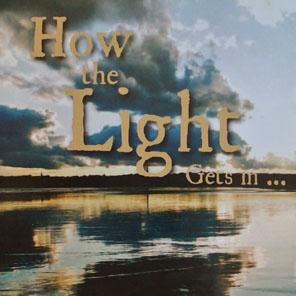
How The Light Gets In | 2009
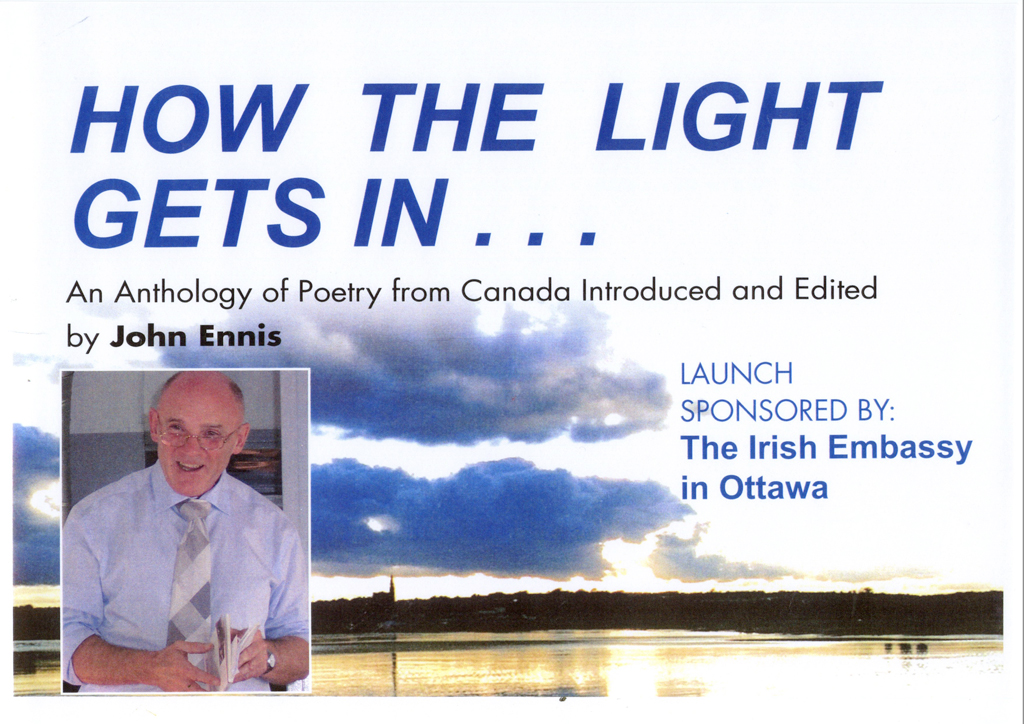
AWARDS
